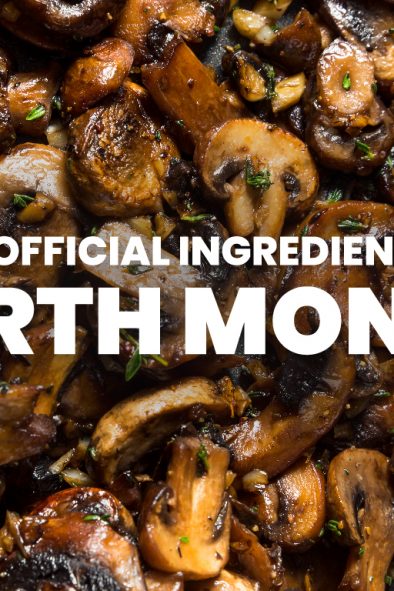Articles
Are Mushrooms Good For You?

Wondering what your favorite fungi can do for your nutrition goals? Curious if adding mushrooms to your plate is a healthy choice?
The answer is a resounding yes!
Keep on reading to discover all the reasons why mushrooms are a nutritious food to choose.
Light & Flexible
Mushrooms fit into just about any diet or nutrition plan thanks to their inherently healthy characteristics:
- Low in calories.
- Very low in sodium.
- Fat free.
- Cholesterol free.
- Gluten free.
Key Nutrients
Mushrooms have important nutrients that support the healthy function of your body, such as:
- Selenium: An important nutrient for healthy immune function, selenium works as an antioxidant to protect body cells from damage that might lead to heart disease, some cancers and other diseases of aging. 1
- B Vitamins: Mushrooms provide the B vitamins riboflavin and niacin, which help to provide energy by breaking down proteins, fats and carbohydrates2,3, and also support healthy function of the nervous and immune systems. 4
- Vitamin D: Many people fall short on their vitamin D intake, but mushrooms that have been exposed to UV light can support by converting ergosterol to vitamin D, just like our skin makes vitamin D from sunlight. 5,6 No other item in the produce aisle can do that!
- Copper: Helps make red blood cells that carry oxygen throughout the body. Copper also aids in keeping bones and nerves healthy.4
- Potassium: Assists in controlling blood pressure and plays a role in making sure nerves and muscles, including the heart, function properly.4
The specific amounts of these nutrients can vary among varieties. Learn more about the nutritional content of each variety here.
Helpful In Weight Management
Despite being low in calories and fat free, mushrooms are hearty and filling. Preliminary research shows that increasing intake of foods like mushrooms that are less energy dense, meaning there are few calories given the volume of the food, in place of high-energy-dense foods, like lean ground beef, can be helpful with weight management because they promote daily energy while limiting fat intake and leaving you full and satisfied after a meal. 7
Learn more about the nutrition benefits of mushrooms and get cooking with tasty ‘shroom-filled recipes.
1 “Selenium in diet.” Medline Plus, National Institutes of Health, www.nlm.gov/medlineplus/ency/article/002414.htm. Accessed December 16, 2020.
2 https://ods.od.nih.gov/factsheets/Niacin-Consumer/
3 https://ods.od.nih.gov/factsheets/Riboflavin-Consumer/
4 Duyff, R. American Dietetic Association’s Complete Food and Nutrition Guide. Third Addition. Wiley & Sons. NJ. 2006.
5 Emberger, Sylvia. “Mushroom - Shedding Light on Their Nutritional Value.” Have A Plant, Produce For Better Health, fruitsandveggies.org/stories/mushroom-shedding-light-on-their-nutritional-value/. Accessed December 16, 2020.
6 https://ods.od.nih.gov/factsheets/VitaminD-Consumer/
7 Cheskin LJ, Davis LM, Lipsky LM, Mitola AH, Lycan T, Mitchell V, Mickle B, Adkins E. Lack of energy compensation over 4 days when white button mushrooms are substituted for beef. Appetite. 2008:51;50-57.






Comments (2)
Mushrooms are a rich, low calorie source of fiber, protein, and antioxidants. They may also mitigate the risk of developing serious health conditions, such as Alzheimer’s, heart disease, cancer, and diabetes.
It’s so fun to know that according to a preliminary study, switching from high-energy dense meals to those that are less energy dense or have fewer calories per unit of food, such as mushrooms I’ve always been a huge fan of mushrooms since I became a vegan some few years ago. I do wish I can find a mushroom herbal supplement I can add to my diet though since I heard it has so many benefits for your health.